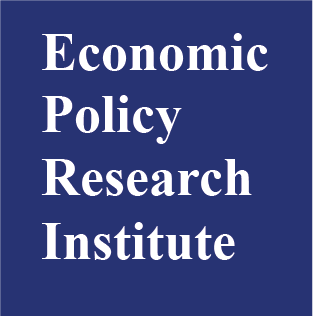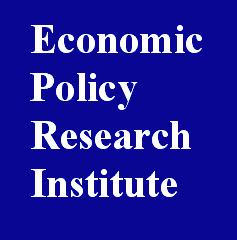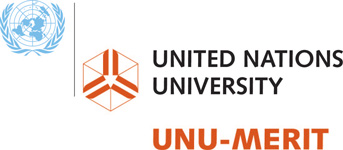Designing and Implementing Social Protection Systems
A course for policymakers, government officials and practitioners from around the world
Cape Town, South Africa
About the course
African countries are increasingly recognising the value of social protection programmes in reducing extreme poverty with success stories in Africa, Asia, and Latin America. The Economic Policy Research Institute (EPRI), together with UNU-MERIT/Maastricht Graduate School of Governance and the Institute of Development Studies (IDS) is offering a two-week course, including a number of specialised modules, aimed at providing participants with an in-depth understanding of the conceptual and practical issues involved in the development of social protection systems. Participants will acquire tools required for the appropriate identification and successful design and implementation of these systems.
Who is it for?
The course aims to build the capacity of policymakers, government officials, representatives from bilateral and multilateral agencies, programme practitioners and staff members from non-governmental organisations in Africa. The course will serve those who want to more effectively design, implement, monitor and manage social protection systems in Africa with the goal of reducing poverty and better achieving the Sustainable Development Goals (SDG’s).
How participants will benefit
At the end of the course, the successful participant will better understand the comprehensive approach to social protection and how appropriate social protection instruments can reduce poverty and vulnerability and promote developmental outcomes. The course will reinforce the skills required to identify, design and implement effective social protection systems. The curriculum is international in scope and standard but with a distinct orientation to the African context. A team of international experts, skilled professionals and leaders in the field will teach the course. The certificated course is jointly accredited by the UNU-MERIT/Maastricht Graduate School of Governance and the Economic Policy Research Institute.
What the course will cover
The course is offered as a two-week course or in one-week course format. Participants have the option of participating in either the full two-week course (core and elective) or simply participating in one of the one-week courses – the core course or the specialized topic electives.
The course includes a coordinated series of theme-oriented sessions, practical skills-building workshops, field trips to visit social protection sites and relevant technical skills training. The course will be taught using formal lectures, practical case studies and hands-on exercises. Topics will include:
- The role of social protection in reducing poverty, vulnerability and social exclusion
- The identification of appropriate social protection instruments for specific country contexts
- The design of social protection and cash transfer programmes
- Implementation issues, including registration, targeting, payment and information systems
- Monitoring and evaluation approaches for social protection systems
- Case studies of successful systems around the world
- Field trips to see South Africa’s social protection system in action
Choose a specialisation
During the second week of the course, participants will attend an intensive, five-day module: Evidence-Building for Social Protection Plus
Evidence-building for “Social Protection Plus”
The module provides participants with a comprehensive understand-ing of what “Social Protection Plus” is, the complex development impacts that “Social Protection Plus” programmes can enable and the key role of strengthened monitoring and evaluation systems in aiding more effective programming. Participants will benefit from an in-depth and practical understanding of how “Social Protection Plus” programmes can be designed and implemented so as to promote sustainable livelihoods and achieve complex developmental out-comes. The module will draw upon successful international case studies which will be applied within an evidence building framework – identifying workable approaches for different country contexts and highlighting the role of a strong evidence base as a key policy tool.
This module will aim to answer six key questions:
1) What is “Social Protection Plus”?
2) Why are governments demanding more from their social protection systems?
3) How can social protection systems be more effectively integrated with social services, livelihoods, climate change initiatives, and shock-resilience?
4) How can M&E systems better enable the more appropriate design and more effective implementation of “Social Protection Plus?
5) How can macro evidence-building approach better support more comprehensive and integrated social protection systems that build synergies with social and economic sectors, better strengthening inclusive social development and equitable eco-nomic growth?
6) How can “Social Protection Plus” better achieve complex out-comes including improving nutrition, expanding youth development opportunities, and strengthening more sustainable and sustaining livelihoods?
For more information on the specialised topic courses, please click here.
Fees and other costs
The tuition fee for the two-week course is USD $4050. The tuition fee also includes travel on scheduled visits and optional hands-on computer-based skill workshops. The comprehensive accommodation and facilities fee is USD $2200, which includes four-star accommodation, three meals per day and teas, incidental allowance, recreational activities and tours, airport transfers and use of included facilities. The fees do not include international travel to and from Cape Town, South Africa.
If you would only like to apply for the core course (one week) or one of the five-day specialised topics, the tuition fee is USD $2300. The comprehensive accommodation and facilities fee is USD $1200, which includes four-star accommodation, three meals per day and teas, incidental allowance, airport transfers and use of included facilities. The fees do not include international travel to and from Cape Town, South Africa.
How To Apply
Click here for an online application form.
For assistance or if you have any queries, please email us on courses@epri.org.za or contact EPRI at:
Phone: + 24 21 035 1407 / +27 21 671 3301
Early Bird Discounts and Group Discounts
EPRI makes available several types of tuition fee discounts; only one discount per course may be applied.
Group Discounts
For every five full paying participant ( tuition and accommodation package), we will waive the tuition fee for the fifth person, with a 20%discount on tuition for every full paying participant thereafter (20% discount on tuition for the 6th full paying participant, 20% discount for the 7th full paying participant and so on.
Partners
EPRI is offering this course in partnership with the UNU-MERIT/Maastricht Graduate School of Governance and the Institute of Development Studies (IDS) in Sussex.
About EPRI
The Economic Policy Research Institute is a South African-based non-governmental organisation with extensive experience in social protection research, policy advisory work and capacity-building. EPRI has designed and taught tailor-made courses and programmes to meet the specific needs of national parliaments, government departments and civil society organisations.
About IDS
The Institute of Development Studies (IDS) is a leading global institution for development research, teaching and learning, and impact and communications, based at the University of Sussex, United Kingdom.
About UNU-MERIT/Maastricht Graduate School of Governance
UNU-MERIT is a joint research and training institute of United Nations University and Maastricht University, based in the Netherlands. The institute explores the social, political and economic factors that drive technological innovation, with a particular focus on creation, diffusion and access to knowledge. Working with its School of Governance (MGSoG), UNU-MERIT covers all aspects of governance in domestic and global organizations, from risk assessment to policy analysis, design and evaluation. The MGSoG prepares professionals and researchers for policy analysis, risk assessment, policy design, policy monitoring, policy evaluation and methods and techniques of policy research. Overall the joint institute functions as a unique research centre and graduate school for more than 80 PhD fellows and 100 Master students. It is also a UN think tank addressing a broad range of policy questions on science, innovation and democratic governance.





